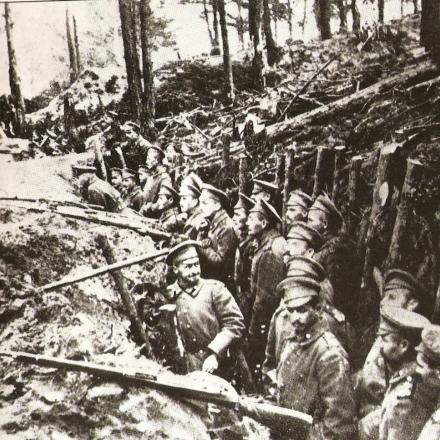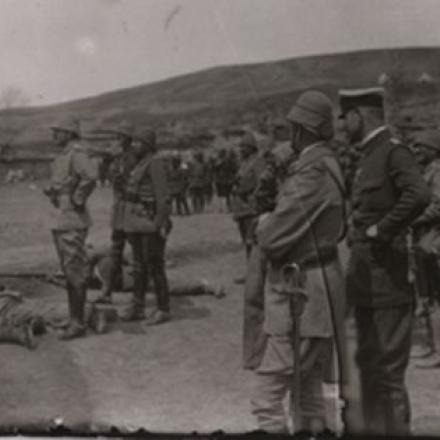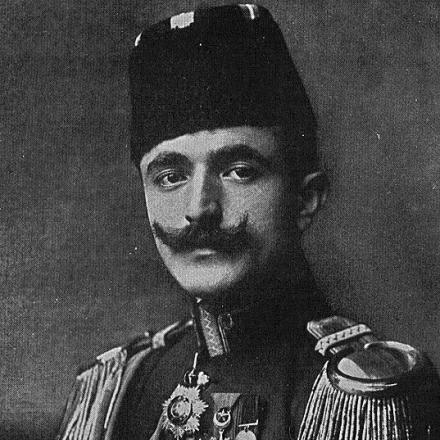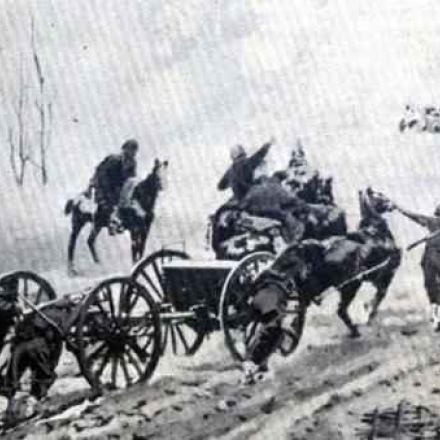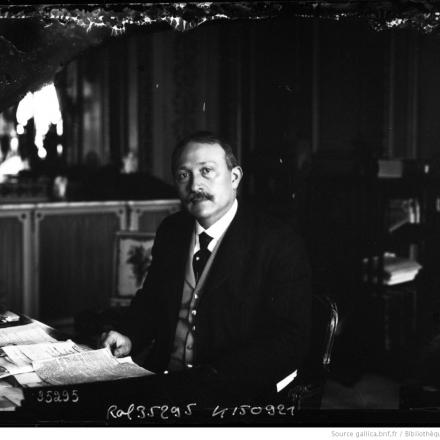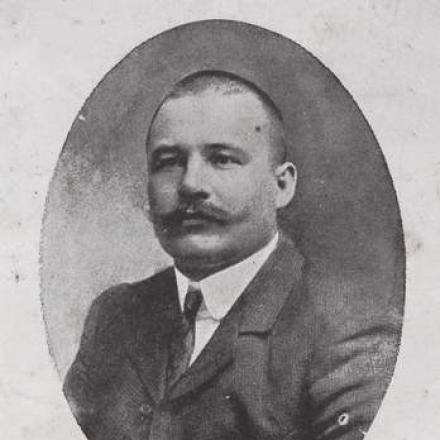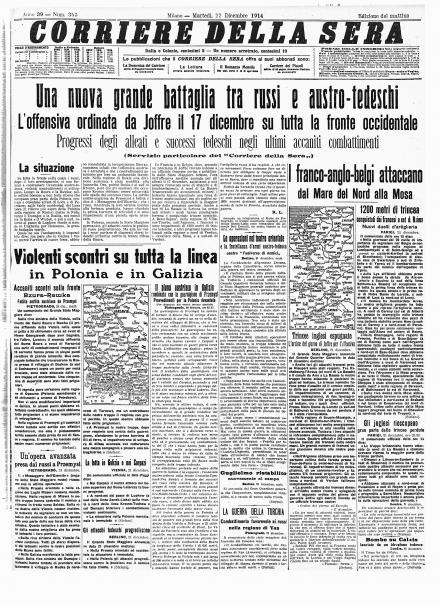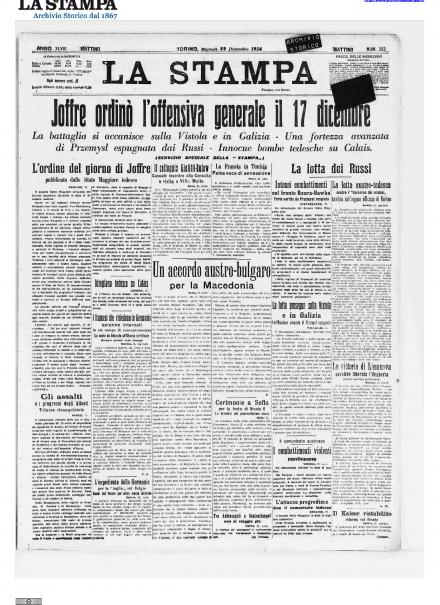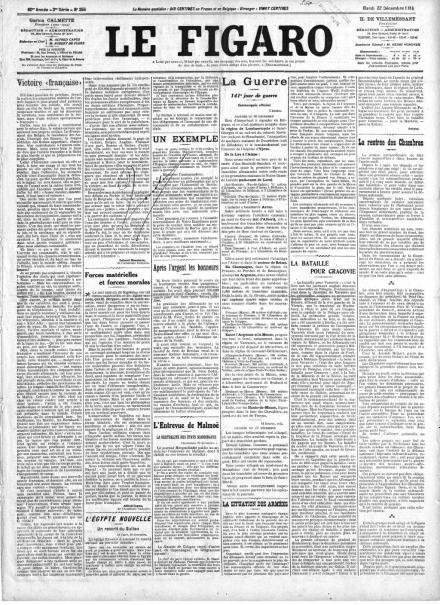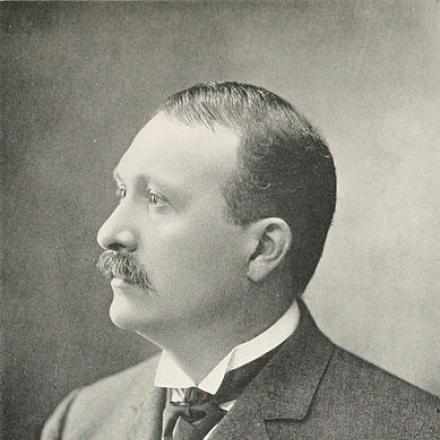L'azzardo di Sarikamiş
Al confine turco-armeno i russi hanno posizionato le armate in altura. Il Caucaso è considerato un fronte secondario, si può controllare e attendere il nemico su un terreno favorevole. A Pietrogrado molti Generali sono convinti dell’inespugnabilità della regione, lo ripetono come un mantra: «Il Caucaso è una fortezza e solo un pazzo cercherebbe di scalarlo».
Bene, ma c’è un imprevisto: l’Impero ottomano ha quel “pazzo”. Il 22 dicembre Enver Pascià cede alla stuzzicante idea di sbloccare lo stallo. Scottato dalla sconfitta sul lago di Van, lancia un’offensiva sui monti di Sarikamiş; siamo oltre i 2.000 metri e in pieno inverno. I soldati ottomani arrancano sulle mulattiere indurite dal ghiaccio. Per aumentarne la rapidità sono stati male equipaggiati; e le comunicazioni già sopra i 1.500 metri sono improponibili. È una follia e sarà pagata a caro prezzo.
La notizia del giorno arriva da Sofia e preoccupa gli Alleati: secondo fonti diplomatiche la Bulgaria avrebbe raggiunto un accordo con Vienna.
L’ipotesi di costituire una nuova Lega balcanica sembra dunque sfumata di fronte alla possibilità di riconquistare la Macedonia. La notizia non può trovare conferme ufficiali; i bulgari restano neutrali. Almeno per ora.
Davide Sartori
GLI AVVENIMENTI
Politica e società
-
Il Parlamento francese riapre a Parigi. Il Primo Ministro Viviani conferma la risoluzione di proseguire la lotta a oltranza, esprimendo la sicurezza del successo finale.
- Gran Bretagna: l’Ammiraglio Sir G.A. Callaghan assegnato a Nore.
Fronte occidentale
- Scontri a Noyon: progressi francesi.
- La battaglia di Givenchy comincia a rallentare; i britannici mantengono la posizione.
Fronte orientale
- Mentre continua da parecchi giorni una battaglia incerta in Polonia, si registra un'iniziativa russa sui Carpazi e in Galizia.
- Sortita austro-ungarica da Przemysl respinta dai russi.
Fronte asiatico ed egiziano
- Offensiva ottomana sul fronte del Caucaso, inizia la battaglia di Sarikamis.
Fronte d’oltremare
- Raid ribelle guidato da Maritz: sconfitti i lealisti boeri.
Parole d'epoca
M. Rene Viviani
Discorso alla Camera riapertura del parlamento francese
Ascolta il discorso di M. Rene Viviani del 22 dicembre 1914
Gentlemen: — There is at present but one policy — a policy of merciless war until Europe has secured final liberation guaranteed by a completely victorious peace. That is the unanimous cry of Parliament, of the country, and of the army. In the face of the unexpected uprising of national sentiment, so unexpected by her, Germany was disturbed in the intoxication of her dream of victory. The French national unity surprised Germany. She had first denied right and spurned history; now she tried to find excuses, but they were so many lies. All the documents published by other nations have proved them so, and likewise the sensational statement of one of the most illustrious representatives of the noble Italian nation, and since France and the Allies have now been compelled into war, they and we will wage it to the bitter end. [The whole House rises and applauds.] France, faithful to the Treaty of September 4, in which she pledged her honour, that is, her life, will lay down arms only when outraged right has been avenged; when for ever the provinces torn from her have been rejoined to her;
when heroic Belgium has been restored to her full material and political independence, when Prussian militarism has been broken, and regenerate Europe rebuilt according to justice. [The whole House rises and applauds for several minutes.]
These projects for peace and war are not suggested to us, gentlemen, by mere presumptuous hopes. We have the certainty of success. [Enthusiastic cheers.] We have shown that, as the Commander-in-Chief, who is a great soldier and a noble citizen—[renewed cheers]—said, the Republic may feel proud of the army she has prepared.
We salute all those heroes—glory to those who have fallen in the field before the final victory, and to those who by the final victory will to-morrow avenge them.
Gentlemen, the hour of final victory has not yet struck. The task till then will be severe. It may be long. Let us brace our courage and our will to it to-day, as yesterday. Let us utter one cry—Victory; see one vision—Our Country; entertain one ideal — Right. It is for that we are struggling, for that we see struggling by our side Belgium, who has given for that ideal all the blood in her veins; unshakable England, loyal Russia, intrepid Servia, and the daring Japanese navy.
If this war is the most gigantic in history, it is not because peoples are flying at each other to win territory and markets, an aggrandisement of material life, or political and economic advantages. It is because they are in conflict to settle the fate of the world. Nothing greater has ever been displayed before the eyes of men. Against barbarism and despotism, against the system of methodical provocation and threats which Germany called peace, against the system of collective murders and pillagings which Germany calls war, and against the insolent hegemony of the military caste, which let loose the scourge, France, an emancipator and avenger, rose with her Allies at a bound. What was at stake was something more than our life.
Heir as she is to the most formidable burden of glory any people has to bear, France agrees in advance to any sacrifice. Our Allies know it. The neutral nations know it. By an unbridled campaign of false news a vain attempt has been made to wring from the latter the sympathies which we have won.
Germany, which at first professed to be in doubt as to those sympathies, is in doubt no longer. She is also realizing once again that the French Parliament, after more than four months of war, has renewed before the world the spectacle it offered on the day when, in the name of the nation, it accepted the challenge. Let us continue to have one soul, and afterwards, in victorious peace, when we have regained the liberties which now are willingly fettered, we will remember with pride these tragic days which will have made us braver and better men.
